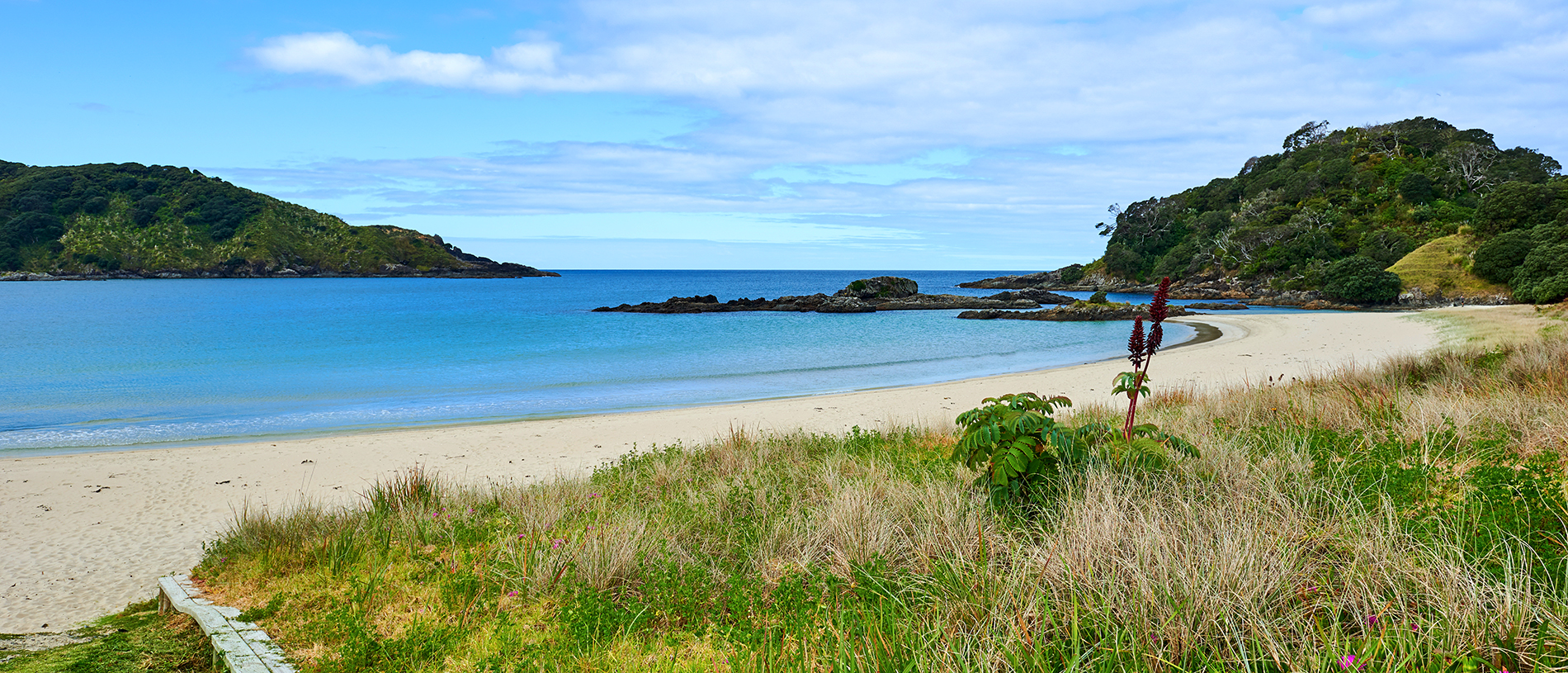
Road Trip: Auckland to Northland's Matai Bay
A coastal road trip from Auckland to Northland takes in art, glorious beaches and plenty of adventure.
With so many cars on the road it can be easy to forget the needs of more vulnerable road users. Here are a few things other road-goers would like motorists to know.
Motorbike riders have unique safety challenges compared with those in larger vehicles, says Motorcycle Safety Advisory Council deputy chairperson, Garry Williams.
“Motorcycles are smaller and less visible, and riders are also much more exposed. We want people to be courteous and considerate. Look before changing lanes, check your blind spots and don’t put your vehicle in a position where we could run into it.

“The stopping distance for a car is much shorter than it is for a bike, particularly when it’s wet.”
A moment’s inattention could have consequences that are much more serious in larger, more protected vehicles. People often don’t think to look for motorcyclists and this lack of awareness can cause scary or dangerous situations.
“If we can bring awareness to all road users – and that includes motorcyclists – about the needs of different people using the roads, there would be a lot less accidents.”
For Julia McLean, there is nothing like going for a ride along the beach on horseback.
“It just lifts your spirits; they are such lovely animals.”
Ideally, she says, riders and horses would be away from traffic but sometimes travelling on the road is unavoidable.
Loud noises and fast-moving vehicles or vehicles getting too close can stress or frighten a horse, making its behaviour unpredictable; a spooked animal is more prone to injuring itself or causing a rider to fall.

“A lot of the time people passing in cars are far too close and far too fast. You’re just left thinking ‘did you not even see me?’”
Julia has been leading the ‘Pass Wide and Slow’ campaign which is aimed at educating motorists and pushing for riders to be recognised as vulnerable road users.
“We want people to slow down around us, give plenty of room and follow the riders’ hand signals.”
Motorists should give horses and riders at least two metres of space, not shout, toot or rev their engine while passing and, when towing, make sure nothing is flapping or making noise that could startle the animal.
Motorists may encounter farmers and agricultural workers on country roads.
David Birkett, Federated Farmers Arable Chairperson says people may need to slow down from time to time when, for example, farmers are shifting tractors or stock down the road, but agricultural workers have the same rights to use the roads as anyone else.
In any scenario, the best thing to do is lower your speed and give workers plenty of room, which David says motorists are generally very good at doing.

“If there is stock, just remember it’s a working environment. There will quite often be dogs, which people should be mindful of, too. The best thing to do if you’re unsure is to ask the farmer what to do.”
When it comes to slow moving agricultural machinery, David says people should be patient and follow overtaking rules.
“The reality is that the job has to be done. Federated Farmers advises rural workers to pull over and let other road users pass, but if this isn’t possible people should be patient and wait for a safe opportunity to get by.”
Cycling skills coach Janet Stark says on roads that are busy or with narrow shoulders, riding a bike can be a scary business where motorists get too close for comfort.
Being smaller and less protected than people in cars, cyclists are vulnerable. “Slow down for a moment. If you’re not 100% sure you can pass safely, give the cyclist some breathing space. When you’ve got room to pass, check the road ahead is clear so that you don’t suddenly cut back in front of the rider.

“I’d like [motorists] to remember we are people, and we have families. We’re not there to get in the way, we’re just trying to get from A to B like everyone else.”
She says those passing cyclists while towing trailers, boats or horse floats, or in larger vehicles, should also be mindful of how much room they need to safely get back into the lane.
"Sharing the road is part of the journey, no matter what sort of road user you are," Janet says.
Story by Matt Tso for the Summer 2024 issue of AA Directions Magazine. Matt Tso is a Communications Advisor with the AA's Motoring Policy team in Wellington who regularly contributes to AA Directions magazine.